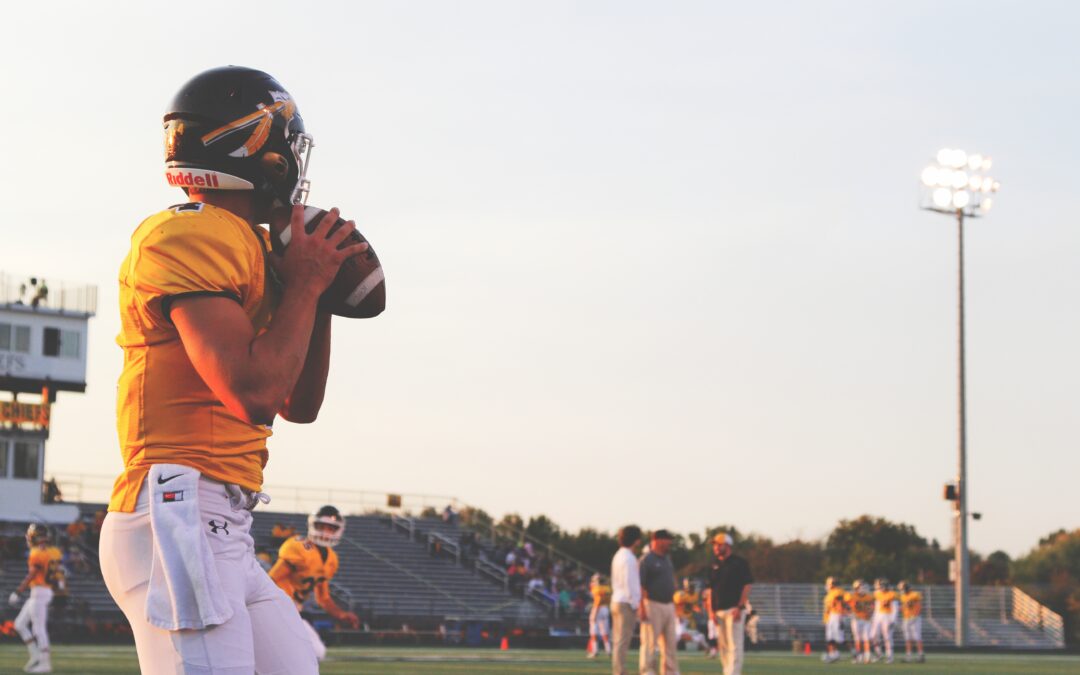Student entrepreneurs looking to earn cash as athletes now have the opportunity to take on sponsorship opportunities, thanks to a recent Supreme Court ruling which allows college athletes to make money from their name, image, and likeness (NIL).
The Supreme Court ruling in June 2021 was unanimous and came after consistent pressure from state legislators and student bodies—a huge turning point in the NCAA and for college athletics as a whole.
Students and small businesses looking to get into this type of partnership should make sure that their contracts are legally binding. I recommend getting the help of a trusted business lawyer to stay protected and make sure that all parties benefit from the agreement.
New NCAA Rules and NIL Laws for Student-Athletes
California’s “Fair Pay to Play” Act, initially approved in 2019, was the first state-level ruling allowing students to accept their NIL payment. Some states have moved forward with similar legislation since.
The National Association of Intercollegiate Athletics (NAIA) also put through their legislation in December 2020, pushing the NCAA further in this direction.
On July 1, 2021, the Supreme Court ruled that previous NCAA rules which prevented athletes from earning cash from sponsorships were unfair and moved to allow college athletes the freedom to monetize their brand based on NIL. (NCAA v. Alston)
Federal legislation is expected to be passed in January 2022, and by that time, most states are expected to also have their NIL laws in place or at least in progress to be finalized in 2022 or 2023.
Before the law was passed, student-athletes could only receive education-related funding from schools in the form of scholarships, stipends, and other “educational” benefits, but not cash payments.
Now, student-athletes can receive compensation through sponsorships and any other activity that falls under the NIL category, and the NCAA is not allowed to place such restrictions on students. The rules even prohibited college athletes from profiting off of unrelated social influencer activities.
Student-Athletes Can Now Make It Their Business
Some student-athletes who were quick to jump into the game include track and field athlete Masai Russell who teamed up with Hulu. Quarterback Graham Mertz, partnered with collectibles brand Panini America. And, basketball player Jordan Bohannon has an apparel line.
And thanks to Georgia Tech’s partnership with TiVo, the team was rewarded silk pyjamas and prepaid debit cards. The school is also benefiting from upgrades to their AV equipment used for team sports.
These examples are just the tip of the iceberg, demonstrating the vast arena for possible partnerships between individual student entrepreneurs and schools and bands.
This new change in legislation is fundamental to students because, while student-athletes often do have partial or complete scholarships, they are not always enough to cover costs. They can even fall short of covering tuition.
The new rules mean that those struggling while managing courses and practice time will have more wiggle room to carve out new sources of income with their NIL.
Student-Athletes Should Seek Legal Counsel Before Signing Sponsorship Contracts
Small businesses and students should expect to profit from brand partnerships, and student-athletes already in the social media “game” can have a lot to offer companies.
Some student entrepreneurs will be looking to build their brands as part of a longer-term career. Others will be looking for smaller-scale or temporary offers. All are on the table, but the student would be wise to consult with a lawyer before signing off on any partnership.
But one drawback is that many students may not have the skills and aptitude needed to be business managers. They may also be unaware of possible legal issues that can crop up with, for instance, perpetual usage rights.
And even student entrepreneurs who see themselves as business savvy may not have what it takes to carry the responsibility of a sponsorship contract while juggling school and practice.
All parties should ensure that legally binding contracts are in place and that lawyers take the time to make sure all parties understand the terms. Especially since this is a new era for student entrepreneurs who want to earn revenue as athletes.
The bottom line: Don’t go into these types of contracts lightly, but do take steps to build your athletic brand and business carefully if that’s something that interests you in the long run.
Do you know a student entrepreneur looking to create a sponsorship contract?
Student entrepreneurs looking to build small businesses should consider getting a well-versed business lawyer to help them develop their careers, athletic or otherwise.
Small businesses looking to work with student entrepreneurs should get legal help to draw up sponsorship contracts. I am a Colorado business lawyer who works with small businesses and student entrepreneurs on branding and more. Contact me for a consultation to learn more about how I can help.



